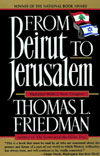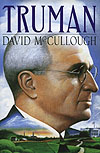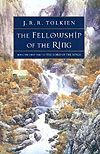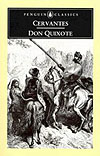
Pride and Prejudice
By Jane Austen
I remember feeling a sense of dread when I learned I had to read this for my English class. I couldn't imagine that a book written in the early 1800s would have anything to do with my life. Was I wrong! I suppose the lesson here is that relationships between the sexes haven't changed that much. There's a powerful part in the book when Mr. Darcy, the man Elizabeth Bennet considers her enemy, turns out to be the one who saves her family's reputation. We've all had Darcys in our life—men who have off-putting exteriors but who, once you start peeling away the artifice, turn out to be someone else entirely. I respected Elizabeth's conviction, and I loved that she had to learn about misplaced pride and prejudice.
By Jane Austen
I remember feeling a sense of dread when I learned I had to read this for my English class. I couldn't imagine that a book written in the early 1800s would have anything to do with my life. Was I wrong! I suppose the lesson here is that relationships between the sexes haven't changed that much. There's a powerful part in the book when Mr. Darcy, the man Elizabeth Bennet considers her enemy, turns out to be the one who saves her family's reputation. We've all had Darcys in our life—men who have off-putting exteriors but who, once you start peeling away the artifice, turn out to be someone else entirely. I respected Elizabeth's conviction, and I loved that she had to learn about misplaced pride and prejudice.

From Beirut to Jerusalem
By Thomas L. Friedman
When I moved to ABC News in 1987 and began to cover the Middle East regularly, I needed to become better informed about that part of the world. Not only is Friedman a gifted writer, but he weaves in his own personal observations and tells the Israeli and Palestinian story with a sense of humor, irony, and humanity. He stresses that there will always be good days and bad days in the Middle East because of the complexity of the politics and religious differences, but his hope is that the good days will vastly outnumber the bad. Unfortunately, that hasn't been the case over the past several months.
By Thomas L. Friedman
When I moved to ABC News in 1987 and began to cover the Middle East regularly, I needed to become better informed about that part of the world. Not only is Friedman a gifted writer, but he weaves in his own personal observations and tells the Israeli and Palestinian story with a sense of humor, irony, and humanity. He stresses that there will always be good days and bad days in the Middle East because of the complexity of the politics and religious differences, but his hope is that the good days will vastly outnumber the bad. Unfortunately, that hasn't been the case over the past several months.

Truman
By David McCullough
This biography is a testament to the importance of values and character. Truman was this very ordinary guy who got thrust into a huge job when Roosevelt died, and he rose to the occasion. Truman made a remarkable journey from small-town Missouri to the Presidency. As McCullough writes: "As much as any president since Lincoln, he brought to the highest office the language and values of the common American people." At first I was intimidated by the book's length, but after the first chapter, I was hooked.
By David McCullough
This biography is a testament to the importance of values and character. Truman was this very ordinary guy who got thrust into a huge job when Roosevelt died, and he rose to the occasion. Truman made a remarkable journey from small-town Missouri to the Presidency. As McCullough writes: "As much as any president since Lincoln, he brought to the highest office the language and values of the common American people." At first I was intimidated by the book's length, but after the first chapter, I was hooked.

The Fellowship of the Ring
By J.R.R. Tolkien
Tolkien's novel was the first adventure-fantasy book I read. I was about 13 years old, and I couldn't believe that someone could have invented an entire world with all those details: the languages, colors, cultures, alliances and characters. For the first time in my life, I learned what it meant not to be able to put a book down. I loved Frodo, and remember desperately wanting him to succeed. The other thing I remember is that the journey the Fellowship took was really difficult, but I wanted to be part of a quest like that. The book made me use my imagination and dream of adventures of my own.
By J.R.R. Tolkien
Tolkien's novel was the first adventure-fantasy book I read. I was about 13 years old, and I couldn't believe that someone could have invented an entire world with all those details: the languages, colors, cultures, alliances and characters. For the first time in my life, I learned what it meant not to be able to put a book down. I loved Frodo, and remember desperately wanting him to succeed. The other thing I remember is that the journey the Fellowship took was really difficult, but I wanted to be part of a quest like that. The book made me use my imagination and dream of adventures of my own.

The Adventures of Don Quixote
By Miguel de Cervantes
My mother did her doctoral thesis on Spanish literature, and when you have a college professor living in your house, not only do you read Don Quixote in English, but you read it in Spanish, too. Though I groaned at the prospect, I ended up loving Don Quixote: He was a bumbling, eccentric country gentleman who always got himself in trouble. In one passage, he sees a large cloud of dust that he thinks is an approaching army—his chance for valor and victory. The only problem? The dust cloud is actually a herd of sheep.
By Miguel de Cervantes
My mother did her doctoral thesis on Spanish literature, and when you have a college professor living in your house, not only do you read Don Quixote in English, but you read it in Spanish, too. Though I groaned at the prospect, I ended up loving Don Quixote: He was a bumbling, eccentric country gentleman who always got himself in trouble. In one passage, he sees a large cloud of dust that he thinks is an approaching army—his chance for valor and victory. The only problem? The dust cloud is actually a herd of sheep.

Heidi
By Johanna Spyri
When I first read this book, I felt as if I had been transported to a whole new world. I could smell the Alpine air and see the spectacular mountains. The thing that struck me most was how this little girl had the power to change so many lives. Heidi came into her grandfather's life basically as a stranger and taught a hardened, bitter guy how to love. Then she had to live with the very spoiled Clara in the city. Even there, though, she was able to teach Clara about values—she found a way to make a difference.
By Johanna Spyri
When I first read this book, I felt as if I had been transported to a whole new world. I could smell the Alpine air and see the spectacular mountains. The thing that struck me most was how this little girl had the power to change so many lives. Heidi came into her grandfather's life basically as a stranger and taught a hardened, bitter guy how to love. Then she had to live with the very spoiled Clara in the city. Even there, though, she was able to teach Clara about values—she found a way to make a difference.




